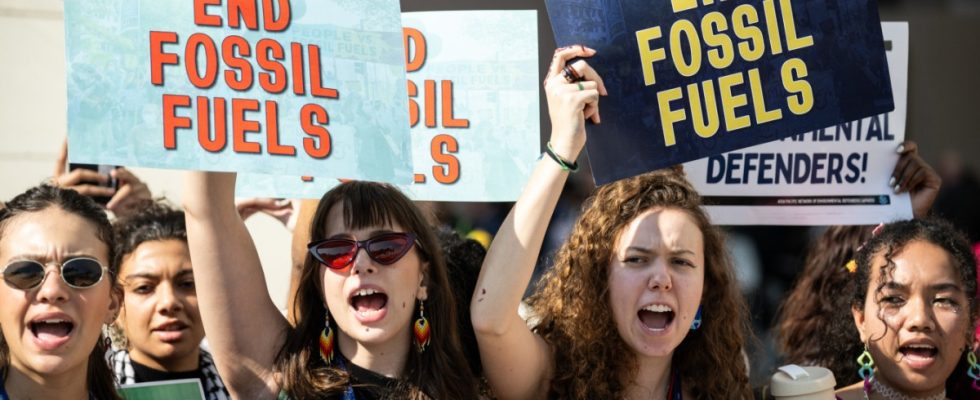There are weeks when it just feels like tearing you apart. Last week was one of those. World leaders have been negotiating at the climate conference in Dubai for eight days. It is already the 28th conference of its kind. It has been eight years since the international community committed itself in Paris to limiting global warming to less than two degrees Celsius, and if possible to just 1.5 degrees. Not enough has happened since then; The climate researcher Mojib Latif, for example, now considers the 1.5 degree target to be unattainable, as he explains in the SZ interview. But now it has to be concrete: Can the states agree to phase out coal, oil and gas – and of all places in the oil state of Dubai?
They actually have to agree on this, because otherwise it will hardly be possible to keep global warming within limits. But so far, some of those involved in Dubai have given the impression that their concern is less about limiting global warming and more about climate protection.
What has happened so far: A fund is intended to help poorer countries deal with the consequences of the climate crisis. A so-called climate club, to which Germany and 35 other countries belong, wants to be a role model in the future. More than 100 countries want to significantly expand renewable energies. And a decision that was sold as a “historic step” by Saudi Arabia and the United Arab Emirates and announced in whispers in the run-up to the conference turned out to be a sham: 50 oil companies want to reduce their CO₂ emissions “approximately” to zero by 2050 – but not the emissions from the oil and gas produced, but only those that arise during their production. Oil and gas themselves should continue to bubble up. The confession varies between a bad joke and a provocation, says my colleague Thomas Hummel, who reported on the start of the conference for the SZ from Dubai.
But there may still be a surprise from COP28. I asked Thomas Hummel how he assesses the conference’s chances of success. He thinks three outcomes are still possible: An orderly and fair phase-out of fossil fuels could be decided. Alternatively, states could simply agree to step up their efforts towards a gradual exit. Or there is simply no agreement, i.e. no decision at all.
For the first time, everything is at stake for fossil energies, and it shows, says the colleague. The head of Exxon Mobil traveled to a climate conference for the first time, and more lobbyists are present than ever before and are trying to influence the negotiations. Putin was just in Abu Dhabi and wants to prevent an exit from fossil fuels; Strong headwinds are also blowing from countries such as Indonesia and India. But if it were possible to forge an alliance from island states and developing countries threatened by climate change, from EU countries and other nations, and if they could increase the pressure – who knows?
I wish you good courage too.
(This text comes from the weekly Newsletter Climate Friday you here free of charge can order.)

